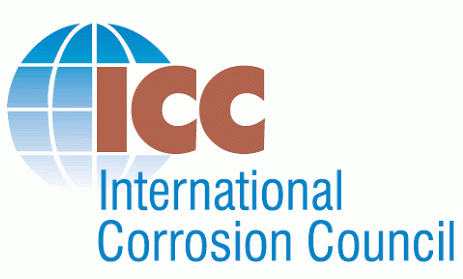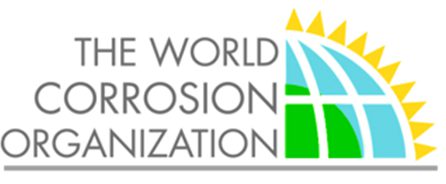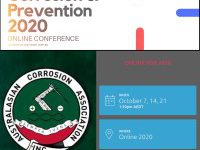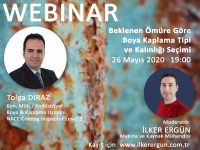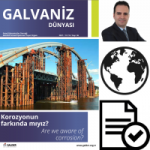Below is a list* of the major NATIONAL & INTERNATIONAL professional organizations operating on CORROSION SCIENCE and CORROSION ENGINEERING.
(*The list is sorted alphabetically.)
Let’s start with the following 6 major professional organizations having international members and influential activities worldwide:
- ACA
- EFC
- ICC
- ICORR
- NACE International
- WCO
Keywords: Corrosion, rusting, international, national, professional organization, society, institute, association, federation, ACA, EFC, ICorr, ICC, NACE, WCO.

ACA – Australasian Corrosion Association
Founded in 1955, the Australasian Corrosion Association (ACA) is a non-profit membership association, headquartered in the state of Victoria – Australia and active especially in the Australasian region (mainly Australia and New Zealand).
The ACA has branches and committees in main centers around Australia and New Zealand.
ACA is governed by a Board of Directors who are elected by members of the Council. The Council consists of the President and two Vice-Presidents, two Council members appointed by each Branch Committee each year and the Public Officer. For more information about the current Council:
https://membership.corrosion.com.au/blog/structure/
What are they doing?
ACA disseminates information on corrosion and its prevention or control, by providing training, seminars, conferences, publications, and other activities (i.e. webinars and virtual trainings). ACA proactively promotes corrosion awareness in Australia and New Zealand and holds annual conferences on the topic.
What are they offering?
The ACA offers these organizations’ training courses about Corrosion-specific, Cathodic Protection, Coatings & Coating Inspection, and Galvanizing in Australasia and Southeast Asia. Moreover, ACA also has strategic partnerships with NACE International (offering 25% discount on NACE International publications) and the SSPC: Society for Protective Coatings. You can view the ACA training list and course calendar from this link: https://membership.corrosion.com.au/training-calendar/
ACA also offers its members access to the EFC Corrosion Papers in the EFC Library via this link: https://membership.corrosion.com.au/blog/european-federation-corrosion-papers/
How to Reach?
You can reach ACA via www.corrosion.com.au or https://membership.corrosion.com.au/contact-us/
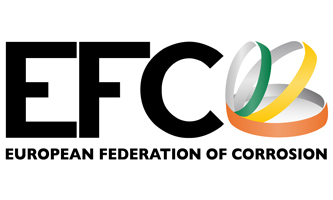
EFC – European Federation of Corrosion
Founded in 1955 and registered in Belgium, The European Federation of Corrosion (EFC) is a federation of 41 organizations (European and International Member Societies and Affiliate Members) with interests in corrosion based in 25 different countries within Europe and beyond. Its aim is to advance the science of the corrosion and protection of materials by promoting cooperation in Europe and collaboration internationally. Taken together, its Member Societies represent the corrosion interests of more than 25,000 engineers and scientists.
The EFC Member Societies and Affiliate Members send delegates to a General Assembly which meets once a year to consider and approve policies. The administration of the Federation is in the hands of the Board of Administrators (BoA) and the scientific and technical affairs are the responsibility of the Science and Technology Advisory Committee (STAC) – members of both bodies being drawn from the EFC Member Societies. The day-to-day operation of the EFC is managed through the General Secretariat with offices in the UK, Germany, and France and the Managing Officer. For more detailed information of EFC history and structure:
https://efcweb.org/About+us/What+is+EFC_-p-336.html
What are they doing?
“The European Corrosion Congress – EUROCORR”, the EFC’s annual conference, is the flagship event of the European corrosion calendar. Attracting upwards of 1000 delegates, it is held every year in September in a different European country. EUROCORR is famous for its high technical standard and its popular social programme. Further information can be found on the congress website at www.eurocorr.org.
The Young EFC, created in 2016, is an active network of students, young researchers, and engineers in the field of corrosion and protection of materials. Its aim is to support young corrosionists in their career development, organizing events which also provides them a network, promoting their interests to the EFC and the European Commission. For more information:https://efcweb.org/Young+EFC.html.
The Federation has also become a founder member of the World Corrosion Organisation, a prime aim of which is to increase public and political awareness of corrosion and to advise governments, industries, and communities about corrosion and its mitigation.
What are they offering?
The EFC accomplishes its most important activities through 21 Working Parties and Task Forces devoted to various aspects of corrosion and its prevention. (You can find these WP’s here in this link: https://efcweb.org/Scientific+Groups.html) The activities of the WP’s include the organization of technical sessions at EUROCORR and specialized courses and workshops, participation in collaborative research and testing programs, as well as the preparation of reports, guidelines, draft standards, and proceedings for publication in the highly regarded EFC series of ‘ Green Books‘ of which there are now over sixty.
Apart from EFC series of ‘ Green Books‘ series mentioned above and the EFC Newsletters, these four reputable journals about Corrosion, namely Materials and Corrosion, Corrosion Engineering, Science and Technology (CST), Matériaux et Technique and Ochrona przed Korozją, regularly publish information about the EFC and its activities.
How can you contact?
In addition to social media accounts of the EFC (esp. on LinkedIn), you can contact them via the links below:
https://efcweb.org/EFC+contact-email-989ede.htm or https://efcweb.org/Imprint.html
ICC – International Corrosion Council
The International Corrosion Council (ICC) founded in 1961 to advance corrosion science and engineering from 66 member countries. These representatives are generally appointed by nationally recognized corrosion societies or by national organizations with a significant interest in corrosion.
For more information about the ICC structure: http://icc-net.org/index.php/history/
What are they doing?
The main objectives of the ICC are:
- to stimulate international research in corrosion science and engineering and to encourage broad dissemination of the results;
- to promote cooperation and friendship among and between corrosion scientists and engineers in every country;
- to foster the practical application of research results through education;
- to facilitate communication between corrosion specialists and engineers.
ICC also organizes the International Corrosion Congress every three years.
What are they offering?
The ICC has traditionally presented the following awards in its congresses: Marcel Pourbaix Award, Edward Greco Award, Past Chairman Award, and Young Researcher Travel Award.
They also provide Sources of Corrosion Information in which you can find country-based corrosion-related useful information.
The ICC also publishes periodical newsletters about its activities and Corrosion science.
How can you contact?
Since this organization is a council, you can reach with the Executive Committee members or country-based members to contact the ICC.
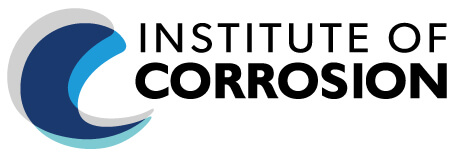
ICORR – The Institute of Corrosion
Originally founded as the British Association of Corrosion Engineers (BACE) in 1959, this name has been changed by the Membership to the Institute of Corrosion Technology (ICorr Tech) and with the merger of Corrosion and Protection Association (CAPA) to the Institute of Corrosion Science & Technology (ICorr S&T) and then simply ICorr. For more detailed historical information: https://www.icorr.org/history/
The Institute of Corrosion is a Registered Charity, run by professionals and volunteers from Industry and Academia. The business of the Institute of Corrosion is governed by the Council and run on a day-to-day basis by the Trustees. The President, Trustees, and Council members are elected at the Annual General Meeting, which usually takes place in November. The Council is chaired by the President, supported by the Vice President and Immediate Past President, giving these officers 6 years of service to ensure continuity. For more detailed information on the structure of Icorr: https://www.icorr.org/icorr-structure/
What are they doing?
INSTITUTE OF CORROSION (ICorr) is a well-established community of corrosion focussed academics and professionals, providing sound industry-related education, knowledge, and networking facilities around the world. Through Correx Limited wholly-owned subsidiary of the ICorr registered in 2003, they organize the commercial activities of the Institute of Corrosion. One of the commercial activities of Correx is Industrial Coating Applicator Training Scheme (ICATS) and was developed due to demand by industry to have formal accredited training for applicators of coatings in the UK. The scheme is mandated by The Highways Agency in NHSS19A and by Network Rail for all applicators. ICATS is also a requirement for many other major structure owners such as Oil Companies, Power Generators, and Infrastructure Owners. For more information about ICATS: https://www.icats-training.org/
ICorr publishes the bi-monthly Corrosion Management Magazine for corrosion control and prevention to be distributed to subscribers worldwide. ICorr also organizes the Young Engineer Programme(YEP) which is a mentored technical competency framework program consistent with Institute of Corrosion professional standards in support of preparing graduates for entry into the industry with a broad range of topics to include; materials, cathodic protection, welding, coating, fire protection, presentation skills, etc.
What are they offering?
In addition to periodical conferences and events, ICorr offers its members training & professional development opportunities. These may be training courses (i.e. Painter Inspector Level 1,2,3 and Hot Dip Galvanizing Inspector Course) offered in two formats, residential with its partner IMechE Argyll Ruane and online with its partner Corrodere. For more detailed information ICorr training offerings: https://www.icorr.org/training-qualifications/
The other offering to its members is Professional Registration [i.e. Chartered Engineer (CEng), Incorporated Engineer (IEng), Engineering Technician (Eng Tech)] by going through a process described in this link: https://www.icorr.org/chartered-engineer-2/
How can you contact?
In addition to ICorr offices throughout the UK (covering England, Scotland, Wales, and Northern Ireland), you can reach ICorr via visiting this link: https://www.icorr.org/contact-us

NACE International
NACE International, The Worldwide Corrosion Authority, was established in 1943 by eleven corrosion engineers from the pipeline industry as the “National Association of Corrosion Engineers” or shortly NACE.
Today, NACE serves nearly 37,000 members in over 140 countries and is recognized globally as the premier authority for corrosion control solutions.
Headquartered in Houston, Texas, with offices in San Diego, California; Kuala Lumpur, Malaysia; Shanghai, China, Sao Paulo, Brazil and Al-Khobar, Saudi Arabia, NACE International is organized into four Areas in North America and four Global Areas. NACE International has 142 sections, including 33 student sections worldwide sponsor local programs to promote the exchange of corrosion information and education
NACE International is a member-driven organization led by its board of directors, who set the tone and direction for organizational operations. For more information about the current NACE International Board of Directors and Officers:https://www.nace.org/about/board-of-directors
What are they doing?
NACE International publishes the magazine Materials Performance and CORROSION journals.
NACE also publishes standard practice, test method, and material requirements standards for use by industry and other corrosion societies. Standing committees periodically review and update the standards every five years. The association hosts an annual conference and several regional meetings and conferences around the world. NACE International also carries out government relations activities and more.
What do they offer?
Aside from organizational activities such as conferences, webinars, awards, and magazines, NACE International also provides certifications and training packages for members in the industry, which can be obtained through course work and exams, work experience, or education through an accredited university. The organization’s certification programs include Cathodic Protection (NACE CP), Coating Inspector (NACE CIP), General Coatings, General Corrosion, Pipeline Industry, and Specialty programs (i.e. NACE PCS and NACE Corrosion Specialist) that covers certifications for carbon steel, chemical treatments, and many other areas. It also offers online training courses. Certifications are issued through the NACE International Institute.
If you are a member of this organization, NACE International also give you the opportunity to join various interesting technical committees: https://my.nace.org/technical/committeeregistration/tegregistration.aspx
How can you contact?
In addition to NACE International offices throughout the world, along with two training centers in Houston and Dubai, you can also connect with NACE International via the link below:
https://www.nace.org/about/contact-nace
WCO – World Corrosion Organization
The World Corrosion Organization (WCO) is a not-for-profit charitable 501(c)3 umbrella organization based in New York, representing 28 societies worldwide with significant interest and activity in corrosion research and abatement on five continents with a combined membership of more than 50,000 professionals in the field. The WCO is a non-governmental organization (NGO) associated with the United Nations (UN). WCO’s mission is to promote education and best practices in corrosion control for the socio-economic benefit of society, preservation of resources, and protection of the environment.
The WCO has members from around the world and falls into two categories: General Members (national not-for-profit organizations) and Affiliate Members (governmental organizations, industrial enterprises, or other profit-oriented organizations). The founding members of the WCO include the following professional organizations that have mentioned in the above paragraphs:
- Australasian Corrosion Association (ACA)
- Chinese Society for Corrosion and Protection (CSCP)
- European Federation of Corrosion (EFC)
- International Corrosion Council (ICC)
For other WCO member organizations worldwide, please check the link below:
http://corrosion.org/Members.html
The Board of Administrators of WCO consists of the executive officers, one member from each of the four founder organizations, and one member from each of three general member organizations selected by the General Assembly. The General Assembly has one voting member from each of the general membership and founder member organizations plus one non-voting member from each affiliate member organization. Furthermore, every organization may have an alternate delegate.
For more detailed information about the current structure and staff: http://corrosion.org/About+Us/Organization.html
What are they doing?
At their last General Assembly in Nashville (TN, USA) on 26th March 2019, Mr. Damien Féron, the new president of WCO, declared that they have decided five main actions:
- to continue the lobbying at the UN with the monthly meetings,
- to increase the impact of World Corrosion Awareness Day, 24thof April,
- to finish the work done on corrosion issues and protection in water supply facilities,
- to be involved in big data and artificial intelligence regarding corrosion protection and control,
- to start a new action on corrosion issues and green energies with the objective to organize workshops and to write a white paper on the subject.
How can you contact?
In addition to their office in USA, China, and Germany, you can contact the WCO via the link below:
http://corrosion.org/Extra_Seiten/Contacts.html
Up to this point, professional organizations working on Corrosion Science / Business / Industry having mostly INTERNATIONAL members or worldwide activities have been mentioned and detailed.
Below you can find the major NATIONAL Corrosion organizations that are playing important roles in Corrosion Science / Business / Industry. (Listing is in alphabetical order.)
- CAS – Corrosion Association Singapore:
http://www.corrosion.sg/
- CEFRACOR –Le Centre Français de l’Anticorrosion:
https://www.cefracor.org
- CORRISA –The Corrosion Institute of South Africa:
http://www.corrosioninstitute.org.za/
- CSCP: Chinese Society for Corrosion and Protection:
http://www.cscp.org.cn
- CSSK – Corrosion Science Society of Korea:
http://en.www.corrosionkorea.org/
- GfKORR – Gesellschaft für Korrosionsschutz:
https://gfkorr.de/
- HUNKOR – Hungarian Corrosion Association:
http://www.hunkor.hu/
- ICA: Iranian Corrosion Association :
http://www.ica.ir/en/ - JSCE – Japan Society of Corrosion Engineering:
https://www.jcorr.or.jp/
- PSK – Gesellschaft für Korrosionsschutz Polskie Stowarzyszenie Korozyjne:
https://psk.org.pl/ - Turkey Corrosion Association:
http://www.korozyondernegi.org.tr/en/
If you would like to read this page in Turkish, please click here!
Tolga DIRAZ / 14.07.2020
P.S: If you notice any national/international Corrosion-related organization is missing here, please feel free to write us to the email address below.



